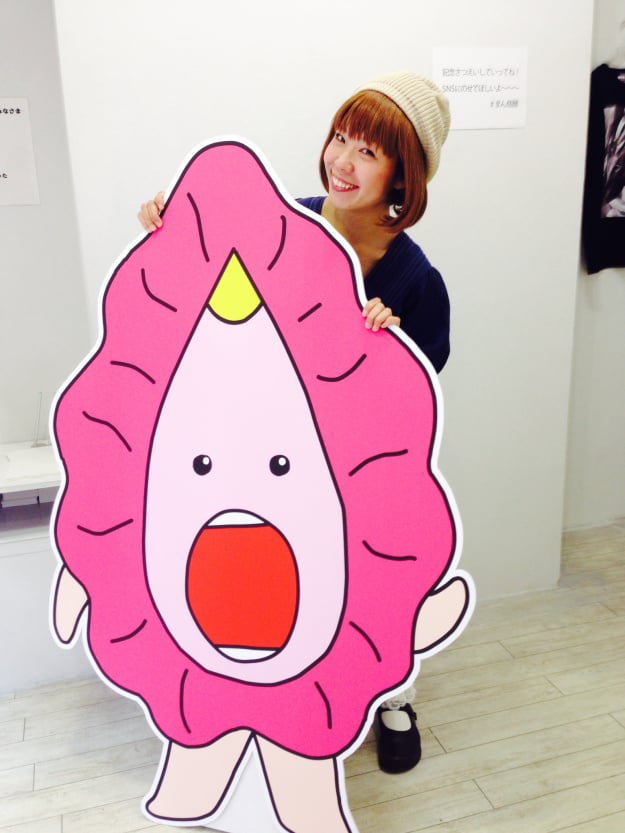Law & Politics
‘Vagina Kayak’ Artist Found Guilty of Obscenity in Tokyo Court
Megumi Igarashi will have to pay a fine, but avoids prison.

Megumi Igarashi will have to pay a fine, but avoids prison.

Lorena Muñoz-Alonso

Concluding a protracted case that began two years ago, a Tokyo district court today found “Vagina Kayak” artist Megumi Igarashi guilty of distributing obscene images.
The Guardian reports that the 44-year-old was slapped with a 400,000 yen fine (approximately $3,500), half the amount demanded by prosecutors. Japan’s obscenity laws carry a maximum penalty of two years in prison, but back in February, case prosecutors decided to only demand a fine of 800,000 yen.
Igarashi was cleared of another charge, related to the displaying of obscene material in an adult shop in Tokyo (namely, plaster versions of the vagina kayak).
The ruling ends a case that goes back to July 2014, when Igarashi was arrested for trying to raise funds online to pay for the construction of a vagina-shaped kayak, which was realized using a 3D printer.

Megumi Igarashi’s documentation of the process of turning a 3D model of her vagina into a working kayak. Photo: Courtesy the artist.
“I don’t believe my vagina is anything obscene,” Igarashi stated in a press conference upon being released. “I was determined I would never yield to police power,” she declared.
In December 2014, however, Igarashi—whose artistic moniker Rokude Nashiko means something similar to “reprobate child”—was arrested a second time on suspicion of having sent a link “that shows her plan to create a boat using three-dimensional obscene data” to numerous people.
Igarishi’s case has highlighted Japan’s rather contradictory stance on pornography. Although the country has a buoyant pornography industry, its laws forbid the depiction of actual genitalia, which usually appear censored or pixelated.

Megumi Igarashi. Photo: Courtesy of the artist.
For the artist, her case also revealed the level of misogyny present in the country. “Works that focus on female gender themes are looked down upon [in Japan],” she told artnet News last year.
Throughout her ordeal with the Japanese authorities, Igarishi has emerged as a strong advocate for women’s rights and freedom of expression, supported and respected by many across the world.
The Guardian reports that an en English translation of her book What is Obscenity? will go on sale tomorrow.